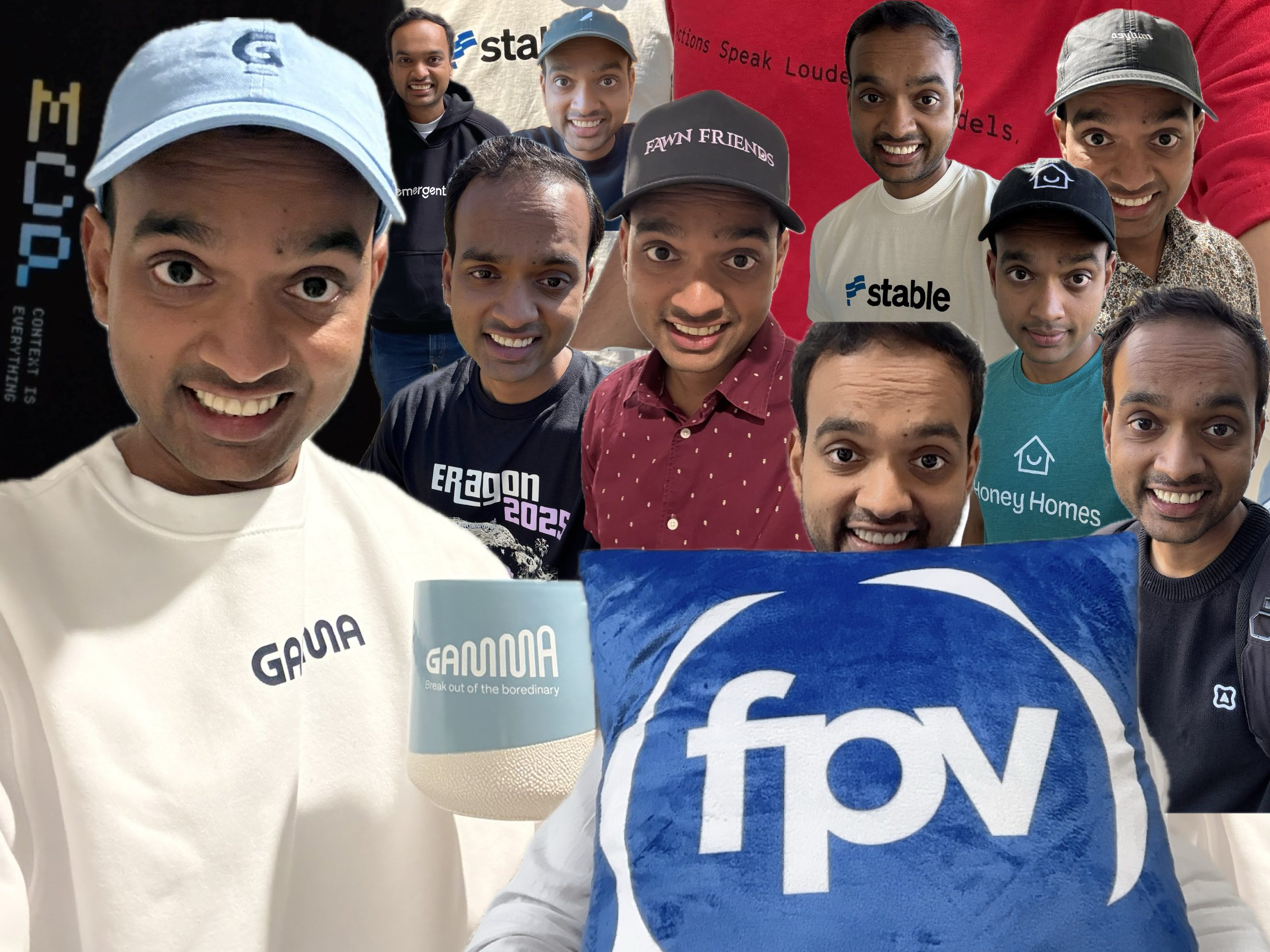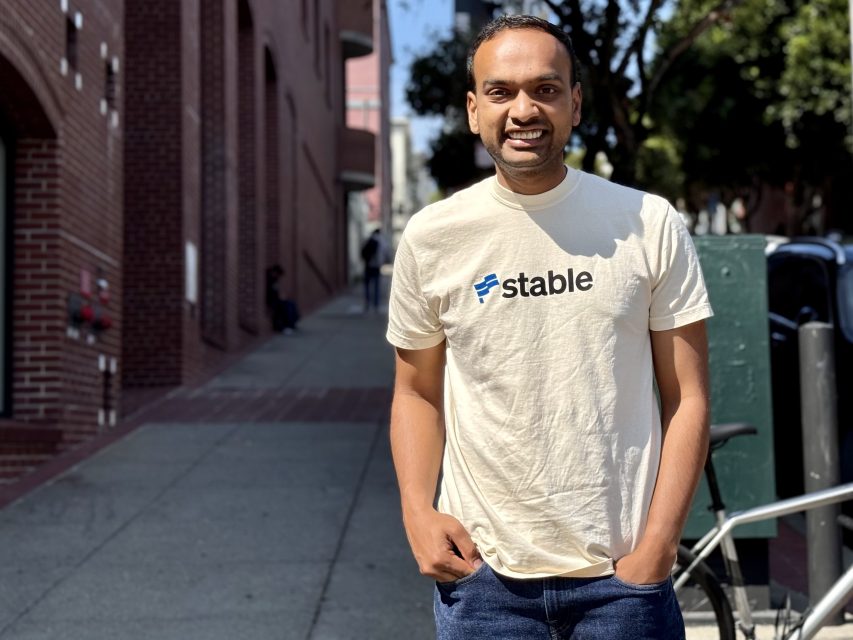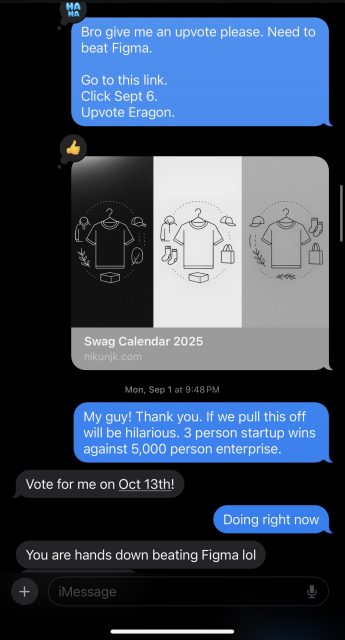
San Francisco is full of AI billboards. One of them is this guy.
作者:Yujie Zhou
These days, every billboard and bus shelter in San Francisco seems to be advertising some kind of indecipherable AI startup.
They dot U.S. Interstate 80 as you cross the Bay Bridge and drive into the city, and they line the sides of Mission District buildings.
Or they’re 34-year-old Nikunj Kothari.
“Why buy billboards in SF when you can just send me swag to market your startup?” Kothari wrote on X shortly before dinner on Labor Day. He did it as a lark, but it kicked off something real.
Kothari’s marketing deal: He wears the company T-shirt or hat sent to him, and he walks the city.
“I walk 5-7 miles every day and will wear it for the full day,” Kothari’s post continued. Any interested companies can see their brand marketed — on the move — through one of the most expensive ad markets in the country, all for the low, low price of sending Kothari some swag.
That day in early September, Kothari posted a link to a calendar where companies could request dates for his services, then went to do some chores.
When he came back an hour later, every day of the month had been booked multiple times. By the next day, October was filled, too.
The AI boom is a crowded field, and startups struggle to be seen.
“If you take any domain or any kind of interesting space, there’s a lot of companies targeting similar ideas,” said Kothari, sitting in a North Beach cafe on a recent Friday wearing a T-shirt with “stable” printed on the front. (Stable provides virtual addresses and mailrooms for businesses.)
Since then, Kothari, a venture capitalist whose company, FPV Ventures, invests in early-stage startups and manages nearly $1 billion, says he has received 305 requests from 202 companies.
They include pre-seed startups, startups in India (where Kothari is from) and public companies like Figma (valued at more than $20 billion).
Kothari estimates that around 90 percent of the companies that have approached him are AI firms, and more than 80 percent are based in the Bay Area.
“This is the beauty about San Francisco. People are very open to just trying things,” said Kothari.

‘We are going head-to-head against Figma for a very meaningless competition’
Kothari doesn’t just sell his services: He makes AI firms, some of them valued at billions of dollars, compete for the privilege via a public vote.
The fight to secure Kothari’s opening swag date, Sept. 6, didn’t look like a fair fight on paper. In one corner: Figma, a user interface design tool currently valued at more than $20 billion. In the other: Eragon, a pre-seed-stage AI-operating-system company with a handful of employees. Both are based in San Francisco.

“Sold,” Figma CEO Dylan Field wrote in a comment posted an hour after Kothari’s original tweet, with a link to a black sweatshirt reading “Figma University.”
Kothari directed Field to join the democratic process on the calendar page, which he built with Anthropic’s Claude Code. The company that got the most votes from anyone with access to the link would win the rights to clothe Kothari on the Sept. 6.
When Josh Sirota, Eragon’s 28-year-old founder, realized his early-stage startup was in competition with a unicorn, it was game on.
“One of the archetypes of founders would be competitiveness,” said Sirota. He immediately rallied all his investors, friends, and early-stage startup founders he knew from accelerators.
“I said, ‘Guys, we are going head-to-head against Figma for a very meaningless competition.’”
It worked. Both Eragon and Figma ended up collecting more than 200 votes.
On Sept. 6, Kothari posted his merch selfie in a black T-shirt that read: “Eragon 2025.”
So far, Kothari’s calendar is seeing more competition for holidays and weekends, as well as dates when companies have product launches.
Shub Argha, the founding solutions engineer for Arcade.dev, requested Sept. 9, hoping that Kothari might wear the company’s T-shirt to startup incubator Y Combinator’s demo day, when the newest cohort of YC-backed startups make presentations to journalists and investors like Kothari.
“He is very popular in the VC community,” said Argha. Kothari obliged by showing up at the demo day in a red Arcade.dev T-shirt with “Actions speak louder than models” printed on the front.
Once votes for a date are tallied and a winner is decided, Kothari sends out an email on how to deliver the swag. Many founders choose to meet him in-person. “That was not the reason I did this,” said Kothari. “But it has allowed me to meet interesting people who I would have never met.”
Kothari says he tries to put on the apparel, usually a T-shirt or baseball cap, in the morning as soon as he gets dressed, and takes it off before bed. In the middle of the day, he typically posts a selfie of each day’s outfit to X. “I don’t like photos of me, per se” said Kothari. “But I committed to it, so I had to do it.”
Kothari adds each day’s swag photo to a long tweet thread, which, in a networking-heavy community, has become predictably networky.
“Every new company gets to know about all the older companies,” said Snehil Saluja, co-founder of Overlayy AI. “I don’t know if he’s aware of that or not, but a network is just being built.”
Also, adds Saluja, getting a slot in the walking billboard experiment “gives you marketing and also gets you noticed as a company.”
Some companies send more than clothing. Kothari once received a confetti cannon, and a request to set it off on video.
“I didn’t do it,” said Kothari, who rigorously sticks to the terms of his deal to wear the logo or name of a company and just walk.
People in San Francisco have started to recognize him out and about. “It’s been a little bit weird when people have seen me in a coffee shop and given me something,” he said.
Kothari plans to conclude his billboard days at the end of October: “I don’t want to prolong it,” he said. And his closet is full as is. “I don’t want to unnecessarily hoard more things.”
“I’m not doing this to make money, although a lot of people have told me that this is a great idea that somebody should do,” he added. If someone else is reading this, he says, “Go ahead.”
The mantle of the human billboard is waiting.
